Doctor en nutrición y producción de Rumiantes de la Universidad Federal de Lavras (Brasil) y Zootecnista de la Universidad de Sucre. Linea de investigación en programación fetal. Interesado en entender como vacas lidan con la restricción nutricional durante la gestación para soportar el crecimiento fetal. Por tal razón he trabajado en conocer los cambios específicos de las matrices durante la gestación, así como los factores que contribuyen al lento crecimiento y desarrollo embrionario. El conocimiento obtenido por medio de está línea de investigación ayudará a los investigadores y/o productores a identificar estrategias e intervenciones de manejo para aumentar la eficiencia reproductiva y mitigar las posibles pérdidas de producción asociadas con las consecuencias de programar la descendencia a través del entorno materno en todas las especies de interes zootecnico. Experiencia también en alimentos y alimentación y producción de bovinos en sistemas silvopastoriles.
PROGRAMA: Medicina Veterinaria y Zootecnia (Cartagena)
CATEGORÍA MINCIENCIAS:
NIVEL DE FORMACIÓN: Doctorado
LINEAS DE TRABAJO:
PRODUCTOS DESTACADOS
Maternal protein supplementation during mid-gestation improves offspring performance and metabolism in beef cows
Fecha de publicación: 01/03/2024
This study examined the impact of maternal protein supplementation during mid-gestation on offspring, considering potential sex-related effects. Forty-three pregnant purebred Tabapuã beef cows (20 female and 23 male fetuses) were collectively managed in a pasture until 100 d of gestation. From 100 to 200 d of gestation, they were randomly assigned to the restricted group [(RES) − basal diet (75% corn silage + 25% sugar cane bagasse + mineral mixture); n = 24] or control group [(CON) – same basal diet + based-plant supplement [40% of crude protein, 3.5 g/kg of body weight (BW); n = 19]. From 200 d of gestation until parturition, all cows were equally fed corn silage and mineral mixture. During the cow–calf phase, cows and their calves were maintained in a pasture area. After weaning, calves were individually housed and evaluated during the backgrounding (255 to 320 d), growing 1 (321 to 381 d), and growing 2 (382 to 445 d) phases. Offspring’s blood samples were collected at 210 and 445 d of age. Samples of skeletal muscle tissue were collected through biopsies at 7, 30, and 445 d of age. Muscle tissue samples were subjected to reverse-transcription quantitative polymerase chain reaction analysis. Prenatal treatment and offspring’s sex (when pertinent) were considered fixed effects. The significance level was set at 5%. At mid-gestation, cows supplemented with protein reached 98% and 92% of their protein and energy requirements, while nonsupplemented cows attained only 30% and 50% of these requirements, respectively. The RES offspring were lighter at birth (27 vs. 31 kg), weaning (197 vs. 214 kg), and 445 d of age (398 vs. 429 kg) (P ≤ 0.05). The CON calves had greater (P < 0.05) morphometric measurements overall. The CON offspring had ~26% greater muscle fiber area (P ≤ 0.01). There was a trend (P = 0.06) for a greater Mechanistic target of rapamycin kinase mRNA expression in the Longissimus thoracis in the CON group at 7 d of age. The Myogenic differentiation 1 expression was greater (P = 0.02) in RES-females. Upregulation of Carnitine palmitoyltransferase 2 was observed in RES offspring at 445 d (P = 0.04). Expression of Fatty acid binding protein 4 (P < 0.001), Peroxisome proliferator-activated receptor gamma (P < 0.001), and Stearoyl-Coenzyme A desaturase (P < 0.001) was upregulated in CON-females. Therefore, protein supplementation during gestation enhances offspring growth and promotes favorable responses to lipogenesis, particularly in females.
Más información ⇨
- « Anterior
- 1
- …
- 3
- 4
- 5
- 6
- 7
- …
- 14
- Siguiente »

